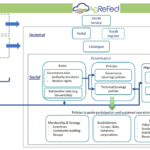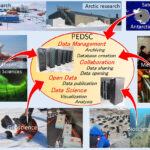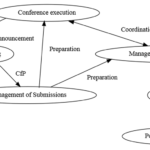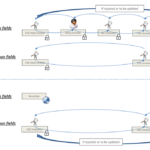

U.S. Senate approves bill to fight climate change, cut drug costs in win for Biden
The U.S. Senate on Sunday passed a sweeping $430 billion bill intended to fight climate change, lower drug prices and raise some corporate taxes, a major victory for President Joe Biden that Democrats hope will aid their chances of keeping control of Congress in this year’s elections.
The future of disaster resiliency and the need for a global vulnerability index
As climate change accelerates the devastation of disaster in populated environments, government leaders across the world are figuring out how to best mitigate these impacts before they happen. First, they must assess who the most vulnerable groups are in their population.
New tool to provide a harmonised fire risk assessment across the Pan-European region
A report stemming from the collaboration between the European Commission and fire specialists from 43 countries has just been published. The report focuses on wildfire risk assessment and provides harmonised data in the Pan-European region. This is of special interest in fire-prone regions, where coherent strategies are needed to prevent wildfire damages.
Boiling Point
The world is getting warmer due to climate change and our cities are warming fastest of all. To many of us, that will come as no surprise: this summer has seen record-breaking temperatures around the world from Ireland to Spain, with a resulting rise in heat strokes and death as cities swelter in this new normal.
How a simulation exercise can prepare remote communities for flood emergencies
When floods occur, places that are hard to reach with conventional emergency services are especially vulnerable. In collaboration with local NGOs, our partner Mercy Corps is helping Nepalese communities to be better prepared for dangerous and costly flooding.
How Well We Manage Water Will Determine How Climate Resilient We Are
Innovations in water management and adaptive planning can create opportunities for climate adaptation and mitigation. Water security is being increasingly threatened by climate change impacts—from flooding to changing precipitation patterns to drought. It is expected that half of the world’s population will face severe water stress by 2030—putting intense pressure on local economies, communities, and the environment.

Pacific National Adaptation Plan (NAP) Guidelines: Guidelines for the Adaptation Planning Process and Contents of NAPs in the Pacific
Tonkin + Taylor have worked together with the Secretariat of the Pacific Regional Environment Programme (SPREP) to develop the Pacific National Adaptation Plans (NAP) Guidelines. The Pacific NAP Guidelines provide practical case studies and tools to support Pacific governments with climate change adaptation. The guidelines have been developed to address the unique environmental, social and economic needs of Pacific countries. To make these fit-for-purpose, the guideline development was led and owned by Pacific government representatives. Moving forward, the NAP Pacific Guidelines will be the primary guidance document Pacific Island countries will use for NAP activities.
Adapt and thrive: Building a climate resilient New Zealand
This document sets out Aotearoa New Zealand’s long-term strategy and first national adaptation plan. The long-term strategy sets out the Government’s approach to adaptation.
World ‘unprepared’ for magnitude of cascading climate risks
As the extreme weather events, the world is already experiencing become more frequent. They will trigger a cascade of these second-order climate risks across a huge swathe of countries.
The Challenge of unprecedented floods and droughts in risk management
On the basis of a global dataset of 45 pairs of events that occurred within the same area, this research shows that risk management generally reduces the impacts of floods and droughts but faces difficulties in reducing the impacts of unprecedented events of a magnitude not previously experienced. Risk management has reduced vulnerability to floods and droughts globally, yet their impacts are still increasing.
Advancing Urban Sustainability for a Green Recovery
Cities are central to economic growth and have a pivotal role to play in achieving global climate, nature, and sustainable development goals. Yet this potential remains largely untapped as cities continue to face unprecedented environmental and social challenges. The current COVID-19 pandemic has affected cities deeply and continues to be a barrier to sustainable and equitable development.
Resilient Transport in small island developing states from call for action to action
This report aims to help practitioners integrate climate resilience considerations into transport asset management and thus enhance climate resilience in the transport sectors of Small Island Developing States (SIDS). SIDS are among the most exposed, vulnerable countries in the world to natural hazards and the impacts of climate change.
Building Climate Resilience through nature-based solutions in Europe: a review of enabling knowledge, finance and governance framework
This paper reviews recent European Union (EU)-supported research, policy, and practices to identify critical dimensions that still need to be addressed for greater uptake of nature-based solutions (NbS). This review is spurred by the key pillars of the European Green Deal (EGD) which rely on NbS to both preserve and restore ecosystem integrity and increase climate resilience.

Australian Disaster Resilience Conference – 24-25 August
The Australian Disaster Resilience Conference is the nation’s premier event focused on contemporary disaster resilience practice and research. The conference brings together a diverse and passionate crowd from a range of sectors to share knowledge and build connections for a disaster resilient Australia.
CLIVAR GOOS ICTP Workshop – 15-17 August
From global to coastal: Cultivating new solutions and partnerships for an enhanced Ocean Observing System in a decade of accelerating change
Post COVID-19 Condition: Children and Young Persons -17 August
Over the past year, WHO has hosted a webinar series focused on the three “Rs”- recognition, research, and rehabilitation to advance the understanding of post COVID-Our next webinar is focused on post COVID-19 condition in children and young people.
International Data Week – A festival of data 23-26 October Salzburg
Save the date!
The International Science Council’s Committee on Data (CODATA) and World Data System (WDS), and the Research Data Alliance (RDA) are delighted to announce International Data Week 2023: A Festival of Data, taking place on 23–26 October 2023, in Salzburg, Austria.







































